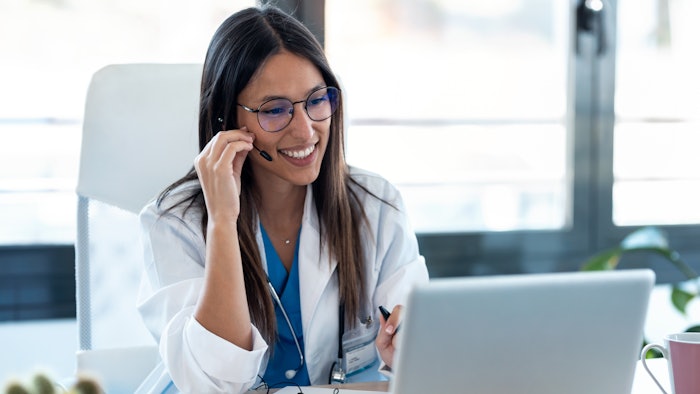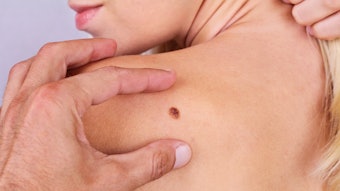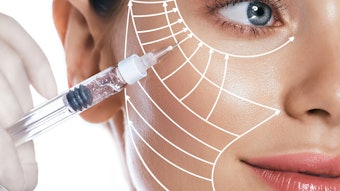
Telehealth utilization in the medical industry experienced varied changes during the latter half of 2023, going up and down in October but jumping up significantly in November. As the industry adjusts post-pandemic, it's still unclear how big of a long-term impact telehealth will have. Regarding medical aesthetics, the expansion of telehealth has altered the consultation process and led to new programs that integrate telehealth into their offerings, including a new GLP-1 therapy program.
Related: Increases in Cosmetic Procedures Attributed to Social Media Trends and Shifting Perceptions
Telehealth Services Growth
According to FAIR Health's Monthly Telehealth Regional Tracker, the national utilization of telehealth services increased 6.3% in November 2023, climbing from 4.8% of medical claim lines in October to 5.1% in November.
In November 2023, utilization of audio-only telehealth services increased nationally and in every region. The largest regional increase occurred in the West (7.5%) and the smallest in the Midwest (2.9%), per the report. The data represent the privately insured population, including Medicare Advantage and excluding Medicare Fee-for-Service and Medicaid.
The increase was 5.4% in rural areas and 6.4% in urban areas nationally. Audio-only use rose from 5.6 to 5.9% of telehealth claim lines in rural areas and from 4.7 to 5% in urban areas. Regionally, urban areas showed a greater increase than rural areas everywhere except the Northeast, per the report.
Telehealth in Medical Aesthetics
Even before the pandemic, telehealth had a presence in the medical world, including the aesthetics industry. In 2015, Practical Dermatology wrote about the common uses of telehealth technologies In the aesthetic and plastic surgery space, mentioning initial cosmetic consultations and follow-up sessions for out-of-town patients and a variety of implementations in early postoperative tracking, wound triage and recovery coaching.
Post-pandemic, the aesthetics industry had embraced the new norm of online consultations to diagnose and treat patients at a distance. Telehealth platforms like Healee help aestheticians and dermatologists use telehealth technology to create a new revenue stream and be more efficient and flexible when delivering care to patients. Certainly Health allows consumers to book medspas and cosmetic procedures and provide upfront costs to avoid any surprise changes. The company was founded by Kevin Chiu (formerly with Uber).
Pinch is a Chicago-based company that offers at-home med spa treatments. Nurse practitioners from Pinch travel to patients instead of operating out of a brick-and-mortar office. It is designed to save consumers the time, expense and parking hassles of going to med spas. The company ensures that treatments are provided by healthcare professionals by allowing consumers access to the provider's qualifications before booking. Appointments are offered every day from 7 a.m. to 10 p.m. Pinch offers solo appointments as well as Pinch Parties for group treatments.
GLP-1 Telehealth Services
Ozempic is an exploding trend in medical aesthetics, approaching mainstream status with a reach beyond the niche audience. This has led to a natural expansion of GLP-1 therapy into telehealth services. Ozempic is already extending its reach into the fitness industry through Life Time Fitness' plans for a program to prescribe weight loss injections for members through in-house medical teams, according to Life Time president and COO Jeff Zwiefel.
Clinical trials are underway testing GLP-1 drugs to treat Alzheimer's, Parkinson's and even drug addiction, according to Lexaria, which offers a GLP-1 drug that uses a DehydraTECH drug-delivery formulation and processing technology to improve both delivery and efficacy. The company's study on the drug suggested potential indications of therapeutic efficacy in heart disease and chronic kidney disease, as well as a wide range of other conditions.
CareValidate launched the CareGLP teletherapy program to provide businesses with "unprecedented access to GLP-1 therapies, including semaglutide." CareGLP equips brands with a comprehensive SOC2, GDPR, HIPAA and CCPA-certified platform that seamlessly integrates every aspect of obesity care, from initial diagnosis to ongoing support and medical treatment. It integrates CareValidate's case management platform with a network of trusted suppliers and providers, making it easy and efficient to offer GLP-1 medications to the user base.











